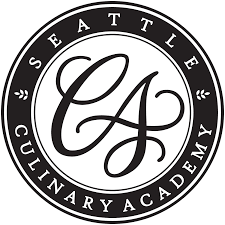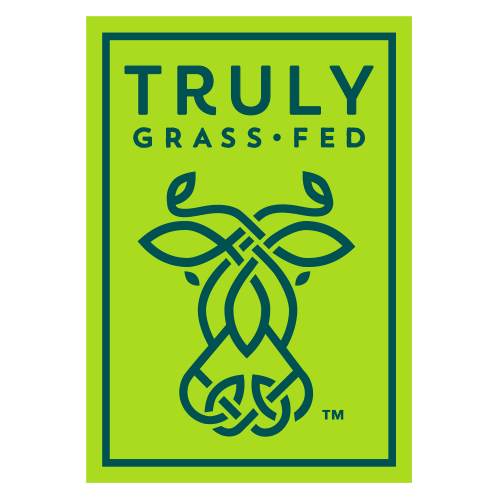Join us for a Slow Beans Supper to celebrate legumes, beans, and pulses. We are thrilled to present our keynote speaker Patricia Lovejoy, co-owner of Garden Treasures Farm/Nursery, who will share her experiences growing over twenty varieties of sustainable legumes. Our leguminous supper will be held at the Seattle Culinary Academy and led by Slow Food advocate and Chef Instructor Kären Jurgensen.
Slow Beans
-
Legume is the umbrella term that refers to all plants and vegetables from the Fabaceae family and includes its leaves, stems, and pods. Legumes include beans and pulses, which are the edible seeds inside the pods.
Source: hsph.harvard.edu
-
Pulses are the edible dry seeds of the legume plant which include beans, chickpeas, dried peas, and lentils. Pulses come in a variety of colors, shapes and sizes and grow in pods.
Source: legumepulses.com
-
Beans are one type of pulse (edible seeds of legume plants). Examples are: black beans, kidney beans, Rockwell beans, and Jacobs Cattle beans.
Slow Beans began as a network of Italian producers, cooks, and activists united around the theme of beans. As members of Slow Food, we identify with their Manifesto of values and intent. Legumes are beneficial to our health, the environment, food security, and cultural heritage.
Humans have been cultivating legumes for millenia. Largely overlooked during times of economic boon as food for the poor, beans are now being recognized as an essential component for a healthy, long life. They are rich in antioxidants, high in fiber, low in cholesterol and help prevent heart disease and diabetes. Because beans are an affordable source of protein and micronutrients and have a long shelf life, they play an integral part of food security. Legumes are also good for the environment by improving soil health and fertility, reducing soil erosion, sequestering carbon, and requiring less water and impact than animal proteins. Plus, with over 400 varieties grown throughout the world, there are endless delicious ways to enjoy them.
Keynote Speaker: Patricia Lovejoy
Patrica Lara-Maldonado was born and raised in the quiet fishing village of Zihuatanejo Mexico as a fourth-generation farmer, and has been in the sustainable food industry her entire life. At an early age, she was taught the importance of caring for natural resources because fresh water was scarce and fishing was the main source for her family’s sea-to-table restaurant. Patricia follows a simple philosophy: “fresco es mejor” or “fresh is best”, a tenet that has been key to her success in the fresh food market.
After graduating from college in Mexico with a business degree, Patricia immigrated to Arlington, Washington to continue her career in local food and sustainable use of natural resources. She incorporates “fresh is best” with a flare of Mexican culture into her agricultural business. As co-owner of Garden Treasures Farm and Nursery, she is a thriving example of the power of sustainable, locally grown produce in Snohomish County.
Dinner: Seattle Culinary Academy / Chef Kären Jurgensen
Seattle Culinary Academy was recently awarded the Slow Food Snail of Approval for food businesses and programs that contribute to the quality, authenticity, and sustainability of the food supply, and who promote good, clean, fair food for all. SCA was the nation’s first cooking school to implement a sustainable food systems course and integrate social justice initiatives throughout the program.
Kären Jurgensen is the fine dining Chef Instructor at SCA. She spends summers at Quillisascut Farm School teaching professional chefs, culinary students, and agricultural professionals farm-to-table immersion courses and philosophy. She is the co-author of “Rethinking the Kitchen, the sustainable kitchen handbook” and “Chefs on the Farm” cookbook.
MENU
Appetizers:
Vermont Cranberry Bean Cracker, Orca Bean Sauce, Dilled Orca Beans and Zolfino Beans (vegan)
Esquites, Romesco**, Pellegrini Beans (vegetarian)
Assorted Cheeses from Truly Grass-fed Dairy
Buffet Supper:
Pork Tenderloin in Torrefacto, Smoked Rockwell Beans, Honeyed Yams, Hazelnut** Mole, Black Currant Apricot Agrodolce
Slow Roasted Celeriac, Spicy Sangre de Toro Bean Puree, Soubise, Sunflower Miso Praline (vegetarian)
Three Sisters Tostada: Kidney Bean Fritter, Grilled Chilacayote Squash, Santa Maria Pinquito and Zolfino Bean Salsa, Tiny Tortilla, Pepita Dust (vegan)
Smoked Tandoori Spiced Masala Arikara Beans, Chickpea Flour Flatbread, Karachi Kitchen Chutney (vegan) - Chef Kausar Ahmed
Green Salad, Roasted Pepper Aquafaba Vinaigrette, Mixed Beans (vegan)
An Pan- Mung Bean Bread - Chef Baylor Paschall
Dessert:
Banana Pudding, Vanilla Bean Creme Legere, Sesame Sangre de Toro Bean Fritter, Black Sesame Praline, Salted Duck Egg Nilla Wafer, Red Bean Ice Cream (vegetarian) - Chef Varin Keokitvon
** Contains Tree Nuts
Sponsors
A huge thank you to Tilia Winery and Truly Grass-fed for their generous product donations.
Tilia Winery is an organic winery in the Uco Valley, Eastern Region, and Central Region of Mendoza, Argentina. They were the first winery to carry the Bodegas de Argentina certified sustainable seal on its label. Deeply rooted in traditions, Tilia Winery’s core practices include promoting biodiversity with a wide range of plants, insects, and animals, and supporting their community with an array of programs. We are excited to pair their exceptional wines with supper.
Truly Grass-fed is an environmentally responsible, animal-welfare friendly, antibiotic-free, non-gmo verified company and Slow Food’s 1% for the Planet partner this year. Truly Grass-fed has been practicing the most modern methods of regenerative farming for decades and is proud to have its roots deep in the Irish tradition of sustainable agriculture, cow-friendly climate, and rich natural resources.
They are strongly rooted in the art of farming and deeply dedicated to sustainability. Their happy cows live their best lives outside on pasture, enjoying a 95% grass fed diet.















